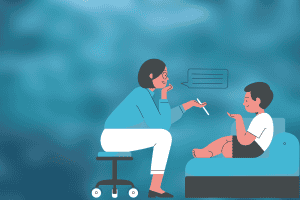Key Takeaways
- A combination of medication and therapy proves to be a highly effective treatment for ADHD.
- Understanding the different types of medications and therapies helps tailor personalized treatment plans.
- Both children and adults can benefit from integrated ADHD treatment approaches.
- Professional guidance is crucial in managing ADHD symptoms effectively.
Table of Contents
- Understanding ADHD
- Medication for ADHD
- Types of Therapy
- Benefits of Combined Approaches
- Professional Guidance
- Conclusion

Understanding ADHD
Attention-Deficit/Hyperactivity Disorder (ADHD) is a neurodevelopmental disorder that commonly affects children and can continue into adulthood. Symptoms of ADHD include inattention, hyperactivity, and impulsivity, which can impact various facets of life, such as academic performance, work productivity, and personal relationships. It’s essential to recognize these symptoms early and seek appropriate interventions. For those in areas like ADHD Addison, managing these symptoms effectively is crucial for improving daily functioning and overall quality of life.
Understanding ADHD requires acknowledging that it is not a result of laziness or lack of discipline. It is a complex disorder that affects the regulation of neurotransmitters in the brain. The condition can present in varying degrees, and its manifestation can differ for each individual. Thus, a one-size-fits-all approach does not apply to ADHD treatment, which underscores the importance of personalized care.
Medication for ADHD
Medications play a central role in the treatment of ADHD, helping to manage the core symptoms and improve overall daily functioning. The most common medications prescribed for ADHD are stimulants, such as methylphenidate and amphetamines, which work by boosting levels of certain chemicals in the brain to enhance focus and control impulsive behaviors. Non-stimulant medications, like atomoxetine, are also available and are often used for individuals who do not respond well to stimulants or experience adverse side effects.
Research indicates that medication can be highly effective when taken consistently and as prescribed by a healthcare provider. Studies have shown that approximately 70% to 80% of children with ADHD experience significant symptom relief from stimulant medications. For a deeper understanding of ADHD medications and their effectiveness, you can visit the CDC’s ADHD treatment recommendations. It is crucial to have routine follow-ups with the prescribing physician to monitor the medication’s impact and make necessary adjustments.
Types of Therapy
While medication addresses the neurochemical aspects of ADHD, therapy focuses on behavioral strategies and emotional support. The integration of therapy into ADHD treatment plans can provide valuable tools for coping with daily challenges. Here are some common types of therapy used in ADHD treatment:
- Cognitive Behavioral Therapy (CBT): CBT helps individuals with ADHD identify and change negative thought patterns and behaviors. It focuses on developing skills for managing time, completing tasks, and dealing with emotional issues such as low self-esteem and anxiety.
- Behavioral Therapy: This type of therapy aims to reinforce positive behaviors and reduce disruptive or harmful behaviors. Techniques often include reward systems and structured routines to encourage desired behaviors.
- Family Therapy: Family therapy involves family members in the treatment process to improve communication, address family dynamics, and support individuals with ADHD. This type of therapy is essential as it creates a comprehensive support system at home.
- Social Skills Training: Social skills training helps individuals with ADHD develop better interpersonal skills. It often includes role-playing exercises to teach effective communication, conflict resolution, and other social interactions.
Each therapy type addresses different aspects of ADHD symptoms and can be tailored to suit the individual’s needs, making it a versatile and essential component of ADHD management. The combination with medication can lead to more well-rounded and effective treatment outcomes.
Benefits of Combined Approaches
Combining medication with therapy has been shown to yield better outcomes than using either approach alone. This integrated treatment plan addresses both the physiological and behavioral aspects of ADHD, resulting in a more comprehensive and effective management strategy. Medication helps control the neurochemical imbalances, while therapy provides coping mechanisms and strategies to deal with the symptoms.
According to recent studies, children who receive both medication and behavioral therapy show significant improvements in academic performance, behavior, and social interactions compared to those who receive only one form of treatment. Adults also benefit from this combined approach, experiencing enhanced work performance and overall life satisfaction. The success of combined approaches lies in their ability to provide a more holistic treatment plan. By addressing ADHD’s multifaceted nature, individuals can experience more balanced and sustained improvement. Personalized treatment plans incorporating medication and therapy are essential for achieving the best possible outcomes.
Professional Guidance
Professional guidance from psychiatrists, psychologists, and other healthcare providers is crucial in developing effective ADHD treatment plans. These professionals conduct comprehensive evaluations, diagnose the severity of the disorder, and create tailored treatment plans that cater to the specific needs of the individual. They also monitor progress and adjust medications and therapies as needed.
Regular follow-ups and open communication with healthcare providers ensure that treatment remains effective and responsive to evolving needs. Healthcare professionals provide the expertise and knowledge required to navigate the complexities of ADHD, making them invaluable partners in the treatment process. Their role in treatment compliance, managing side effects, and offering therapeutic support cannot be overstated.
Conclusion
In conclusion, while ADHD presents numerous challenges, effective management through a combination of medication and therapy can significantly improve outcomes. Understanding ADHD and recognizing the need for personalized, multifaceted treatment plans is critical. As with any treatment, the key to success lies in consistency, professional guidance, and an individualized approach. For those seeking effective ADHD management strategies, integrating medication with therapy offers a promising path toward improved functioning and quality of life.
